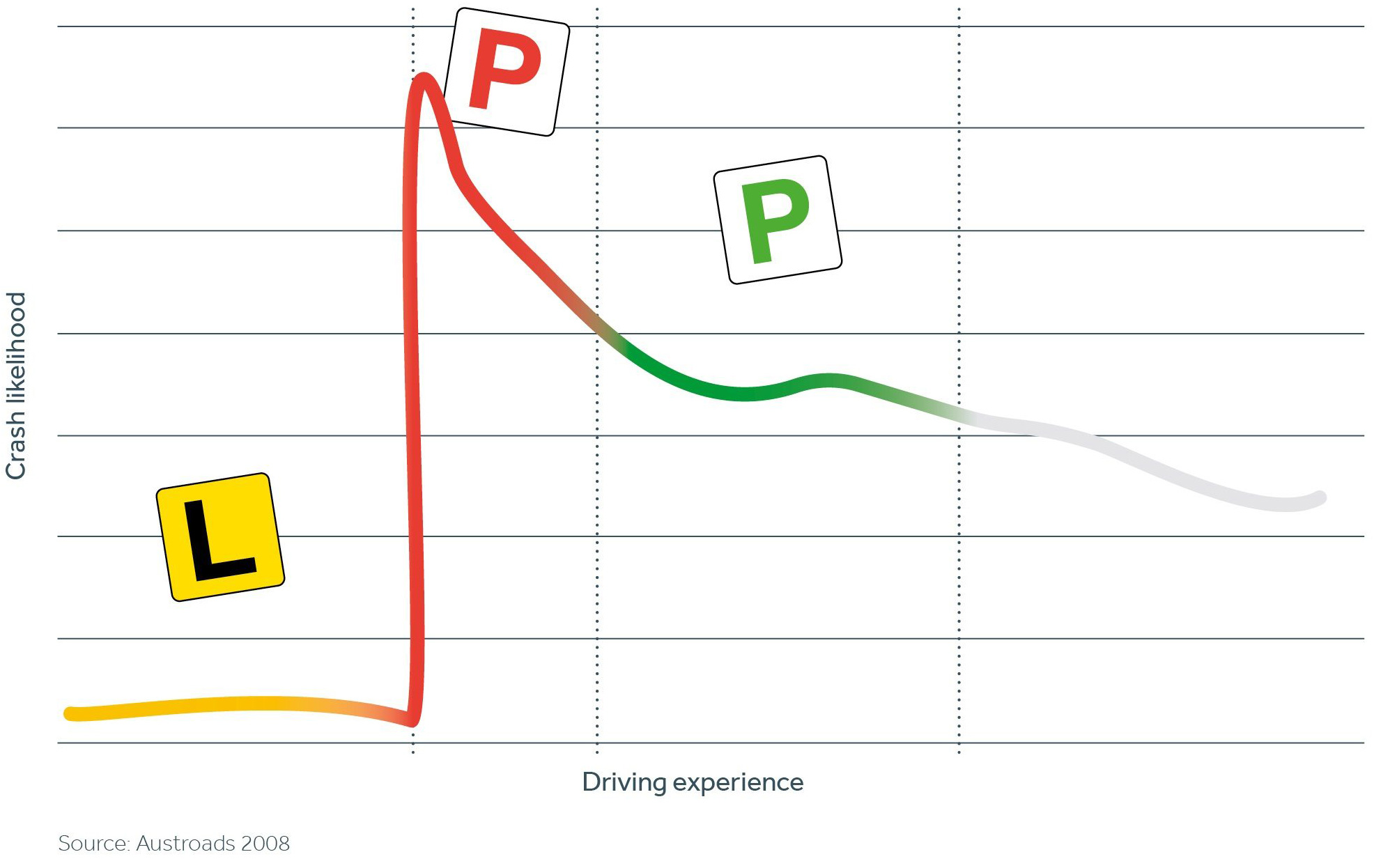
Crash spikes
Drivers are very safe at the learner stage, but the first six to 12 months on your P-plates sees one of the highest spikes of crash rates throughout a driver’s lifespan.
Young road users aged 16-25 years continue to be overrepresented in Tasmania’s crash statistics. Evidence shows more practice, in more conditions, more often makes young drivers safer. It gives them valuable experience and enables them to develop their driving skills.
Improved training for those entering the licensing system, together with licensing restrictions to prevent higher risk behaviours, such as zero blood alcohol concentration, provide opportunities to improve safety for these road users.
In Tasmania, the Department of State Growth recently implemented an enhanced Graduated Licensing System (GLS) to support young people to become safer drivers by making sure they get more on-road supervised driving experience in a wider range of conditions and that they demonstrate the right skills before being allowed to drive without supervision.
For more information about the GLS, visit Plates Plus.

Drivers are very safe at the learner stage, but the first six to 12 months on your P-plates sees one of the highest spikes of crash rates throughout a driver’s lifespan.
When purchasing a first car, it’s important young drivers choose the safest car within their price range. To help determine a car’s safety, visit ANCAP for new car safety ratings, or check out used car safety ratings on How Safe is Your Car.